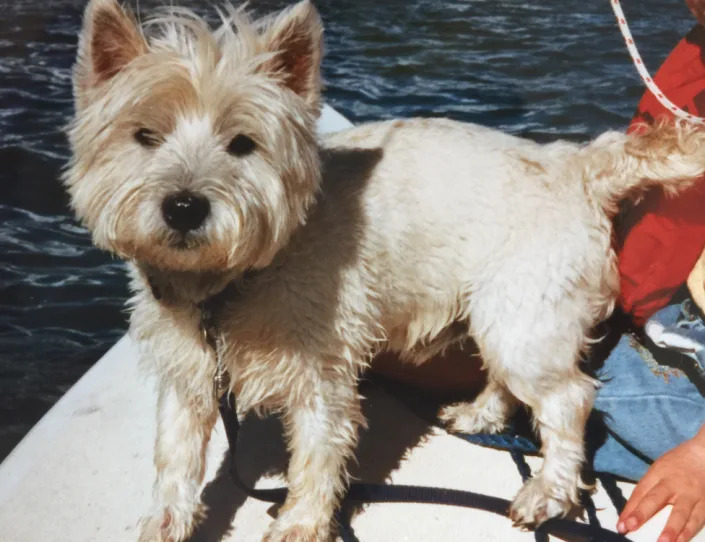Jonah Fisher - Environment correspondent
Fri, January 21, 2022

Waste dumped in a car park
The government has announced plans to tackle what the head of the Environment Agency has called the "new narcotics" of fly-tipping and waste crime.
The proposals would see checks on who is able to handle and dispose of waste, as well as a digital tracking system.
Fly-tipping is the illegal dumping of rubbish, like mattresses and bags of waste, in parks, or on pavements.
There were 1.13 million fly-tipping incidents in England in 2020-21, a rise of 16% on the previous 12 months.
The cost, which includes clear-up and lost taxes, has been estimated to be £1bn a year.
The government says its reforms will address flaws in part of England's waste disposal system, the Environment Agency's Carrier, Broker and Dealer registration scheme (CBD).
The consultation on reforms covers England only, but the mandatory digital waste tracking will be UK-wide.
'I registered my dead dog'
If you want someone to come to your house and pick up an old sofa or rubbish, they are supposed to be registered on the CBD database, and you should be able to go online to check they are legal.
Licensing system failing to stop dumping, Panorama finds
Watch: Panorama's Rubbish Dump Britain (UK only)
'Fly-tipping makes us feel like we live in a slum'
The problem with the CBD system is that there appear to be almost no checks made on who can register, as Mike Brown, who runs an environmental consultancy company, discovered. Back in 2017 he successfully registered his dead dog to highlight the many flaws in the system.
"Oscar, our beloved highland terrier, died in 2006. Frankly we were very surprised at just how easy it was to register him as a waste carrier in just 15 minutes for £154," he explained.

To expose flaw in the system, Mike Brown registered his dead dog Oscar as a waste collector
"The reason the system is broken is that, over the last decade, the funding for the waste regulator has reduced at exactly the time that these inadequate rules are being tested by criminals, whose proceeds from crime have increased."
The system hasn't changed since then. If you've got the money to spare, you can register yourself or your pets to take away rubbish. A Guardian columnist even registered his goldfish.
In practice, many people don't even get as far as the website and use unregistered operators. Some research suggests that as many of two-thirds of those advertising waste disposal services are unregistered.
It's helped created what Environment Agency head Sir James Bevan has called the "new narcotics" of waste crime.
Disposing of waste legally costs money, whether in landfill tax or the fees paid for it to be processed or recycled. So fly-tipping criminals make money by undercutting the prices of legal operators, and then simply dumping the load without paying any of the fees.
"Organised crime has emerged in this sector because it is in essence low-risk and high-reward," Sam Corp, head of regulation at the Environmental Services Association, told BBC News.
To count as fly-tipping, waste must be larger than a black bin's worth. If less, it's considered a littering offence
If caught fly-tipping a person can receive a penalty fine or even go to prison
On-the-spot fines start at £400 and have been known to increase to £50,000
Households can also be fined indirectly if they pass their waste on to an unlicensed party who then dumps it
On public land it is the responsibility of the local council to clear it up and prosecute. Last year, nearly half a million investigations and prosecutions were carried out
Martin Montague is what can best be described as an anti-fly tipping vigilante. Fed up with the regular dumping of waste outside his home in Hampshire, he set up the Clearwaste website and app where people can report fly-tipping.
"We get something new every few minutes," he says, as he scrolls through pictures of asbestos, sofas, broken wood and bursting bin bags that have been abandoned across the UK.

Martin Montague set up a website where people can report fly-tipping
Mr Montague passes on his information to local councils, but has also developed the appetite for trying to gather evidence to try to catch those responsible.
"I'd probably put some cameras in here," he tells me, as he walks alongside a shallow stream near Romsey. It's full of rubbish, both bin bags and sheets of asbestos, some of it with yellow tape marked "dangerous" on it.
"It's lucrative because the penalties are so little. Are you going to deal drugs and risk doing hard time, or fly-tip on a large-scale basis? It's a good cash generator."
The government consultation on waste crime is looking at two key areas. Firstly it proposes to introduce background checks into the CBD registration system, with those given permits having to demonstrate they were competent.
Secondly it would introduce digital waste tracking - which would means those handling waste would have to record information from the point waste is produced to the stage it is disposed of, or recycled and reused.
Waste and resources minister Jo Churchill told the BBC the reforms were aimed at cracking down on those responsible for waste crimes.
"People need to be able to see that [they are using] an authorised carrier, and that they have surety that their waste is going to be disposed of properly," she said.
No comments:
Post a Comment